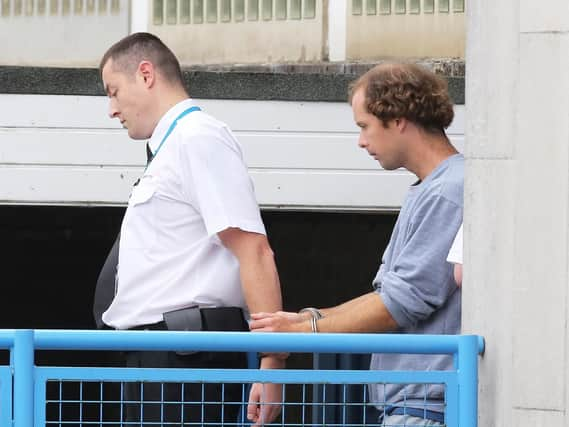'Tragic death' of Worthing great-grandfather Don Lock due to NHS failures, report concludes


Mr Lock, 79, was stabbed 39 times by Matthew Daley after a minor collision between their cars on the A24 in Findon on July 16, 2015, caused by Daley breaking suddenly.
This morning, an independent review commissioned by NHS England found that Daley's paranoid schizophrenia was consistently misdiagnosed as autism by Sussex Partnership NHS Foundation Trust, that looked after him for seven years before the killing, and staff thought his increasingly violent behaviour was the criminal justice system's responsibility, not theirs. This meant he was not getting the care he needed in the run-up to Mr Lock's death.


Advertisement
Hide AdAdvertisement
Hide AdAfter Daley's sentencing, Andrew Lock, Don Lock's son, said ‘it is now up to the NHS and the systematic arrogance that exists in the medical world to change for good'.
The report's author Naomi Ibbs made 21 recommendations to the trust, including 12 which were essential to improve patient safety. She said: "It is our view that had Mr W been in receipt of effective therapy starting at any stage between 2008 and 2015 the tragic death of Mr Lock may have been avoided.
"It is our opinion that the root cause of this incident lies in the Trust’s failure to ensure that robust assessments were undertaken, in accordance with NICE guidelines."
In response, the trust's chief executive Sam Allen admitted 'they had got things wrong' and apologised to the families affected by the death. She said: "I want to say sorry to the two families affected by the devastating incident in July 2015 which led to this independent investigation. Having met both families and heard about the pain they have been through, it is important to acknowledge that we got things wrong.
Advertisement
Hide AdAdvertisement
Hide Ad"We fully accept all the findings and recommendations of today’s report. It highlights a range of issues that we are focused upon putting right in order to reduce the risk of something like this happening again.
"We should have acted differently in relation to the care and treatment we provided to Matthew Daley and I apologise unreservedly for this. In particular, we were treating him for Autistic Spectrum Disorder but today’s report highlights that we had never undertaken a full, formal assessment to establish this diagnosis. We didn’t attach sufficient weight to his psychotic symptoms or his non-compliance with medication. We then failed to listen to the concerns of Matthew’s family and to undertake a clinical review of his care. As a consequence, we missed the opportunity to explore other treatment options such as therapy or hospital admission.
"In particular, the way we handled things at the time shone a light on the need for us to be much better at communicating with and supporting families. We have established family liaison roles, based on the model used by the police, to improve the way we do this.
"When we make mistakes, we need to work together to understand what happened in order to reduce the risk of something similar occurring again. This can help us continue improving services for the patients, families and local communities we serve. That’s why, at the same time as saying sorry, I want staff to know I am committed to supporting them with the difficult, pressurised and complex job they do."
Advertisement
Hide AdAdvertisement
Hide AdDaley was charged with murder, but due to his mental health he was acquitted of this by a jury at Lewes Crown Court in May 16, 2016, and was instead found guilty of manslaughter on grounds of diminished responsibility.
He received a life sentence on July 8, 2016, and is currently serving at least ten years in a medium secure unit at Hellingly, East Sussex.
In the wake of the court case, Sussex Partnership NHS Foundation Trust commissioned its own review of the Daley case and several other killings of patients or by patients in their care.
Sam Allen said: "Today’s report is consistent with the learning identified by the independent, thematic review of homicides we commissioned in 2016 and published in the light of this tragic incident. We have a duty to the people who use our services, their families and the public to use this learning to help continue improving the services we provide.”